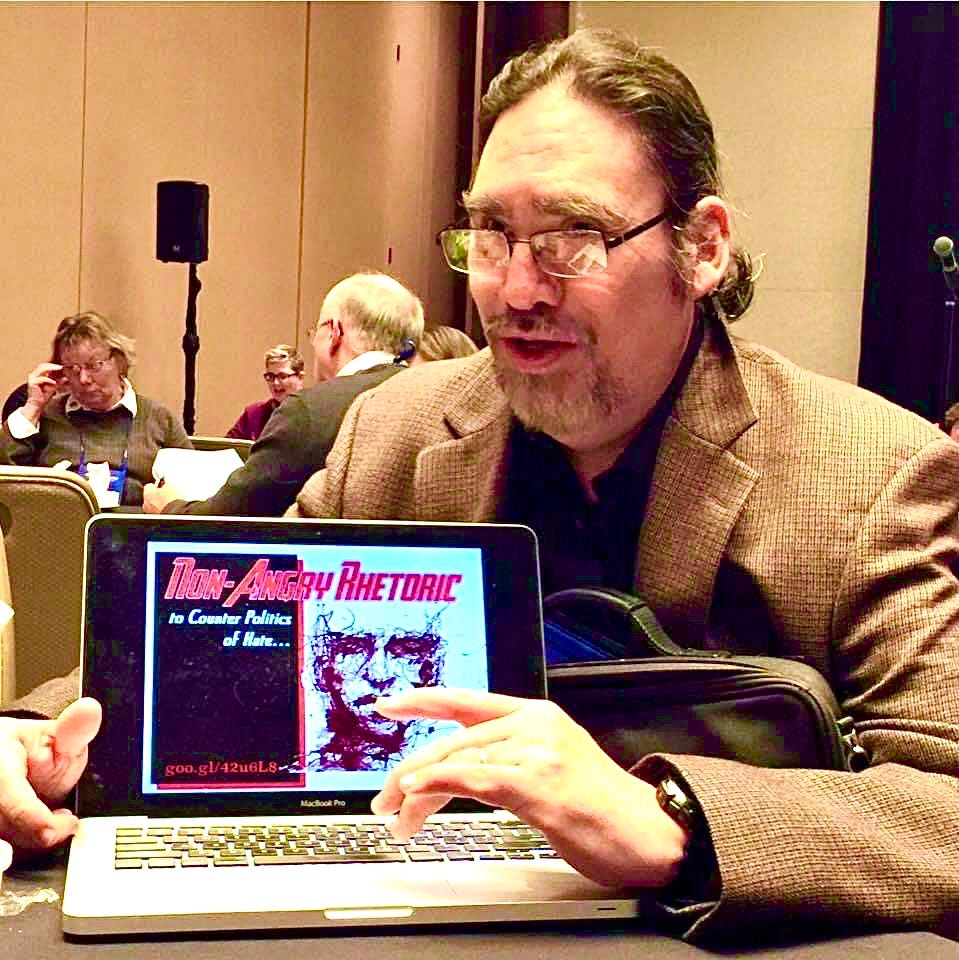The Importance of Journalism
To the Republic
One of the great fortunes of working in journalism for many years is having many friends. I have worked with hundreds of great journalists since the 1960s, and we fought many battles side-by-side in the trenches of daily news coverage. I haven’t forgotten my friends or those battles.
Some of my friends went from working in daily journalism to teaching at high schools and colleges. I’ve invited several of them to write articles for this newsletter because they have a unique perspective as journalists and academicians. My hope is to bring you one of their articles every four to six weeks.
As I have mentioned in previous newsletters, journalists usually begin learning their craft as students. Many high schools and colleges have newspapers, radio stations, and even television stations where aspiring journalists learn about the craft of covering and reporting the news. The teachers and professors who teach those students are examples for what kind of journalists they (the students) will become as they graduate and join the world of professional journalism.
One of my best friends in the world of journalism is Dr. James Nunez. He was “Jim” to me and his co-workers at WAAY-TV back in the 1980s and 90s. He served as our News Assignment Editor. Jim spent 25 years in broadcast news — WTOK-TV, WAPT-TV, WAAY-TV, and ABC 33/40 TV.
Dr. Nunez is in his 14th year as an educator in Title One Schools. He teaches US Hy 1&2 and AP US History (Post Reconstruction to Present) at Center Point High School in Center Point, Alabama. James earned his PhD in Pedagogy for Diverse Populations in April 2021.
Dr. Nunez has published in Oregon, IL Social Studies journals, and two book chapters in textbooks. He is currently awaiting publication for a chapter advocating the use of Monuments, Markers and Online Museums to promote historical empathy for the marginalized. James also presented at the National Conference for the Social Studies and the International Conference for the Social Studies.
I’m pleased to share Dr. Nunez’s article with you.
The Importance of Journalism To the Republic
© Dr. James Nunez, 2022
The role of journalism and accurate reporting about the events that occur within the United States is an essential civic responsibility. The eyewitness accounts of problems, debate, and actions associated with all things ‘America’ provide compelling narrative that keep its citizens informed. It’s in the DNA of a government structure that is constantly evolving toward what our Constitution hails as a “more perfect union.”
Responsible journalism provides citizens information that helps drive debate regarding how the Republic should evolve. Even more importantly, accurate reporting provides a trustworthy manuscript from which America’s story is shared to future generations. Journalists hold a key responsibility in sharing information that is vital, accurate, and trustworthy. The narrative must be objective, or at the very least self-identified as biased — presented in a manner to achieve a particular agenda.
As a former journalist of more than a quarter of a century and a history educator of over 15 years, I am greatly concerned about what I see in journalism today. The contention between individuals and ideas aren’t new. What does worry me is the narcissistic-tinged rhetoric that I see occurring too often within the crumbling “fifth estate”. Journalism icon Carl Bernstein recently called local television news coverage a “disgrace” [https://www.cnn.com/2022/01/14/media/carl-bernstein-journalism-book-acfc/index.html]. He insists that modern journalism is motivated by scandal, adding “That’s not the best obtainable version of the truth. It’s trying to manufacture controversy. That’s not what our job ought to be.”
All events that occur within society have four important qualities. They include contextualization, causation, conflict, and continuity.
Context
Context is the substance of energy of people or events that inspire action. It’s a backstory if you will. Ancient Judaism stated it this way: “There is nothing new under the sun.” Tension is generally caused by a series of events. Many of those events occurred over time. Journalism requires serious investigation and contemplation of the context of an event. Many young journalists seek a scoop to garner attention or fame. Contextualization keeps reporting centered upon people, events, and the tension that can occur when two or more people disagree about a particular event and its impact upon the shared world we live in.
I am a fan of Star Wars. I love the opening scroll at the beginning of each episode. The information is vital to the story. The scroll offers contextualization so that there is breadth and depth for the information that is being imparted within each chapter of the franchise. Every news event has a back story. Finding that back story is critical for journalism because it sets the reporter’s crosshairs upon the truth.
Causation
Causation is concerned with the catalyst of a given circumstance(s). All events have a genesis from which to find reason for its being. Causation reveals intention by the actors involved within a particular event. Sometimes the event itself is the source of causation. A careful investigation must be centered upon causation. Finding out that essential information determines if a suggested news tip is a news story worth consumer interest or essential to be reported as an important historical event. No reporter is so gifted that every assignment is worth reporting on. In fact, a solid news tip has about a 35 to 40 percent possibility of ever reaching print or air. The ultimate litmus test is honesty. Causation must meet the test of honorable intention to avoid scandal or sensationalism.
Conflict
Point of view is another essential quality of journalism. Conflict is at the heart of all tension. As reporters we are objective. We don’t choose a side. We give wide latitude to point of view. In fact, if a report only has one side, it shouldn’t be aired or written. Personally, I don’t like “allegations” reporting. An allegation is a suggested action, often bereft of essential point of view. Very often, people who are charged with a crime are cleared of any wrongdoing. Nevertheless, a reputation is smeared for a lifetime.
A point of view lacking perspective of a different opinion is propaganda. Every effort must be made to seek opposition to a statement – even if a mob demands its truth. Otherwise, reporting becomes advocacy. Advocacy has its place, but only in an extreme circumstance.
Continuity
Finally, reporting must also be weighed by the quality of continuity. What impact does a historical event have for the future? What will be the impact of community when information is released? Does a news item have meaning beyond the moment it is reported well into the future? Can a report harm a community? Is the item worth keeping an eye on and updating? How has a particular event affected people or a community over time. Now, we have gone full circle into contextualization again.
I am writing this article with a unique perspective. I am an ex-reporter and a current history teacher. I am watching as the world is attacking each other using so-called history they think they are learning on the TV each night. I have a PhD in teaching Pedagogy in diverse populations. Teaching is a form of reporting. I am driven to report history accurately, and that takes time, humility, and a commitment to get things right!
News is too often reported today by journalists who want to advocate for the left or right. Meanwhile, the promise of “We the people in order to form a more perfect union” is being lost.
What will stand in the void?
Memories
Thank you, James. I have lots of memories of our time together at WAAY-TV in Huntsville, Alabama. Here’s a picture of us at the assignment desk — James checking the newspaper and me checking my briefcase. Ahhh, the good old days.
Next Newsletter
We’ll take a closer look at how journalists handle “misinformation and disinformation” in our next newsletter.
Comments Welcome
I hope these thoughts are helpful to you as a journalist or news consumer. Please share your comments and I’ll respond as quickly as I can. If you like what we’re doing in this newsletter, please let your friends know about it so they can subscribe.
Newsletter Purpose
The purpose of this newsletter is to help journalists understand how to do real journalism and the public know how they can find news they can trust on a daily basis. It’s a simple purpose, but complicated to accomplish. We’ll do our best to make it as clear as we can in future newsletters.




